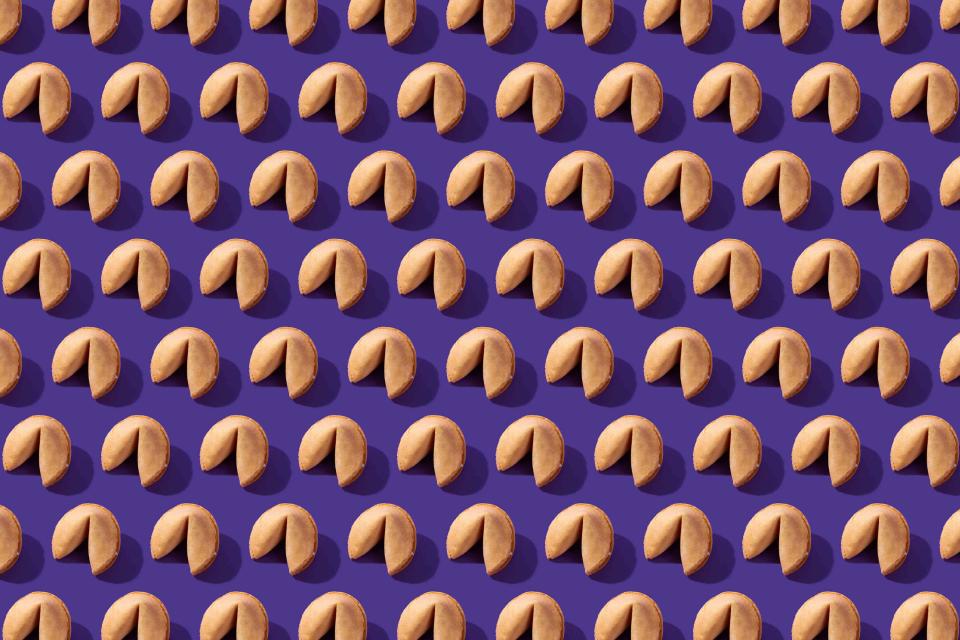Fortune Cookie Writers May Be Losing Their Jobs to A.I.
ChatGPT is already being deployed to write the bits of wisdom found on those little slips of paper.

Getty Images
Even the fortune cookie — with its crisp texture, subtly sweet taste, distinctive semi-circular shape, and concealed message — isn't immune to the new reality of artificial intelligence.
Despite not being a real Chinese tradition, an entire industry is dedicated to the fortune cookie, with approximately three billion manufactured each year. From predicting lottery numbers to telling jokes and repurposing ancient proverbs, manufacturers have written millions of fortunes, hoping that customers will never get the same one twice. Now, some of them are turning to A.I. to carry on the copywriting tradition.
OpenFortune, a company that combined advertising with fortune cookies, is one of the first to invest in ChatGPT tech to create fortune cookie messages. Co-founder Shawn Porat tells The Wall Street Journal that the robot-generated messages are virtually “indistinguishable” from those written by industry veterans.
Charles Li, owner and CEO of fortune cookie factory Winfair Foods Inc., has already begun using OpenFortune’s cookie-writing software as a timesaver. Li previously employed freelance writers to create fortunes for the 11,000 restaurants his company supplies nationwide and often spent hours writing fortunes himself. While the chatbot can spit out fortunes in mere seconds, other manufacturers don’t have as much faith in A.I. when it comes to quality of the fortunes.
Related:I Asked ChatGPT if It Could Run a Restaurant. It Said Yes
Wonton Food Inc., supplier to more than 40,000 restaurants nationwide, has a database of over 15,000 fortunes that it cycles through in order to prevent customers from opening repeats. VP of Sales, Derrick Wong, admits the task of fortune writing can be challenging, but worries that bot-generated fortunes might be either offensive or boring. For now, Wonton Food continues to rely on the creativity of freelance writers and their existing fortune database.
Mr. Chan, co-owner of family-run Golden Gate Fortune Cookie Factory, tells WSJ that computer-generated fortunes are “a sign that society is moving too fast.” Golden Gate makes about 10,000 fortune cookies by hand daily. Chan and his mother have written more than 5,000 fortunes themselves. To Chan, turning to computers would mean losing the humanity and meditative nature behind the fortunes.
While OpenFortune is investing in the future of artificial intelligence, they’re also not writing off humans just yet. A recent press release from OpenFortune states their copywriting team “will remain intact as creative thinking ultimately drives the success of this innovative media format.”
For more Food & Wine news, make sure to sign up for our newsletter!
Read the original article on Food & Wine.

